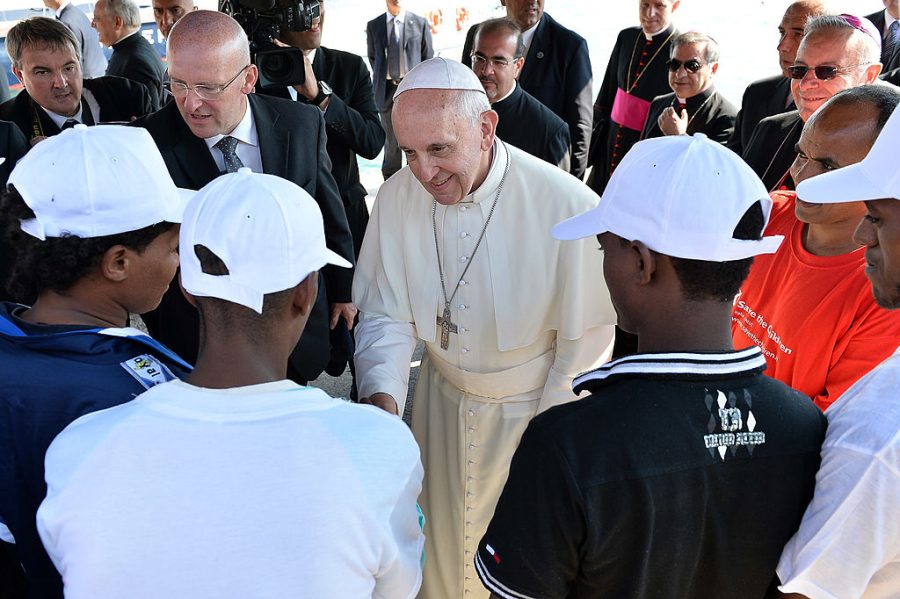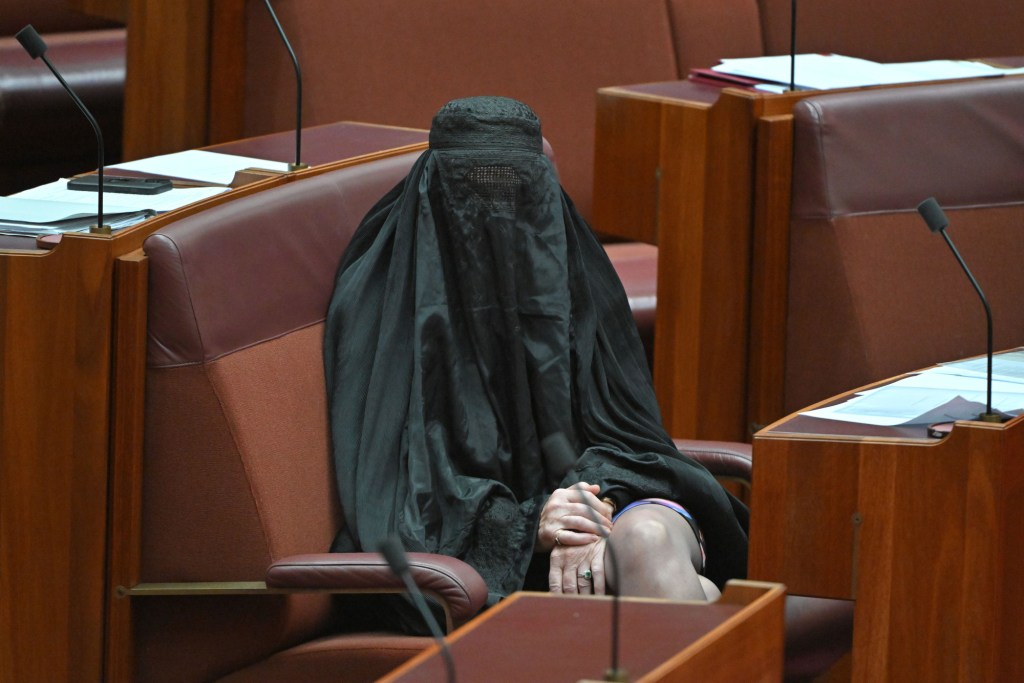Migrants have been pouring into the Mediterranean island of Lampedusa this month. Over 100 on Monday and 344 on Wednesday; the previous week 269 landed, and at the start of April more than 1,000 arrived in a 48-hour period. They are Eritreans, Ethiopians, Sudanese, Guineans, Moroccans, Syrians, Malaysians, Somalis and Senegalese but the three nationalities most heavily represented are Bangladeshis, Egyptians and Pakistanis.
Most told their rescuers that they set out from Libya. So much for Giorgia Meloni’s efforts to persuade Libya to work with her to stem the flow of migrants across the Mediterranean. Last year the Italian PM, supported by the EU, signed deals with Libya and Tunisia; in exchange for mountains of cash, there were promises to stop the small boats leaving for Lampedusa.
Meloni was elected to power in September 2022 with a pledge to drastically reduce illegal immigration, but twelve months later, some 15,000 migrants landed on Lampedusa in a matter of days.
Europeans aren’t indifferent, they’re informed
Meloni is often held up as an example of a European leader who has cracked the migrant conundrum, but clearly she is still a work in progress. In the first two months of this year, more than 7,000 migrants entered Europe using the Central Mediterranean route, a 48 per cent increase on the same period in 2024. The numbers dropped in March, on account of the bad weather, but as recent weeks have shown, calmer weather brings out the people traffickers. If many hundreds are crossing in April, one wonders how many will make the journey at the height of the summer when the Med is as calm as a millpond.
Lampedusa, which is 80 miles from Tunisia and has a population of 6,000, has been on the frontline of Europe’s migrant crisis since it began in 2011 following the Arab Spring. At the time, most Europeans expected the migrant surge to be short-lived, a response to the toppling of the regimes in Tunisia, Libya and Egypt. Most of the continent was pro-migrant, exhibiting a compassion for those willing to risk their lives to reach Europe, particularly as they were fleeing turbulence and unrest.
This sentiment was encapsulated by Pope Francis when he arrived on Lampedusa in July 20123 for his first pastoral visit outside Rome since becoming Pontiff four months earlier. He met some of the migrants recently arrived on the island and called for a ‘reawakening of consciences’ to counter the ‘indifference’ some harboured towards migrants. ‘We have lost a sense of brotherly responsibility,’ he declared.
In 2023, to mark the tenth anniversary of the Pope’s visit to Lampedusa, Monsignor Robert J. Vitillo, head of the International Catholic Migration Mission, issued a statement in which he lamented that many consciences had not been sufficiently reawakened. ‘Let us pray for pardon in the face of our own personal, community, national, and global inattention to forced migrants,’ he said. ‘Let us find the courage, prudence, and fortitude to retrace our shipwrecked humanity into a fraternal, compassionate, dignified, and welcoming humanity for all our sisters and brothers in our global human family.’
But public attitudes towards Europe had shifted significantly in the decade after the pope’s visit to Lampedusa. The sheer numbers of migrants – 1.8 million in 2015 alone – had shaken the continent. There had been a series of terrorist atrocities committed by people who had entered Europe as migrants or asylum seekers, and the pressure on housing, education and health caused by mass immigration was eroding social cohesion in many countries.
As a consequence, many electorates had started to look outside mainstream political parties for solutions to the crisis. Even on Lampedusa, the spirit of fraternity began to fray in September 2023 when thousands of migrants arrived. Mayor Filippo Mannino declared a state of emergency, saying they could no longer cope. ‘We have now reached a point of no return and the island is in crisis.’
Meloni flew to the island, accompanied by EU Commission president Ursula von der Leyen, and promised action. ‘Migration is a European challenge and will receive a European solution,’ said von der Leyen.
Europe has yet to rise to the challenge. Thousands of migrants continue to risk their lives crossing the Mediterranean or the Channel. Most are not fleeing war or persecution. They are economic migrants from Pakistan, Bangladesh, Egypt and Morocco.
Following the death of Pope Francis, the mayor of Lampedusa, Filippo Mannino, announced his intention to name the pier of Favarolo in the late Pontiff’s honour. ‘Lampedusa was chosen for his first apostolic trip and has remained a symbol in the world of the cry against indifference towards migrants,’ said Mannino, who praised the pope’s ‘powerful message of brotherhood, peace, hosting and friendship’.
Europeans aren’t indifferent, they’re informed. They have come to understand since 2013 that the sheer numbers of migrants arriving on the continent are unsustainable. Europe is not more peaceful and more friendly as a result. It is angry, apprehensive and impatient for action.








Comments